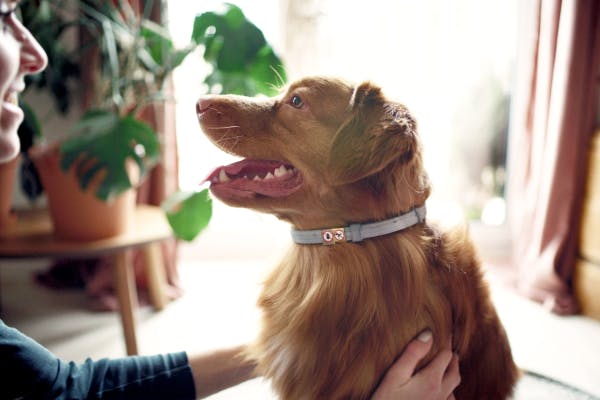learn about medicated dog shampoo
An In-Depth Look at Medicated Dog Shampoos: Their Purposes, Kinds, and How to Apply
Medicated dog shampoos are special products made to tackle certain skin problems in dogs, like allergies, infections, dry skin, and bug issues. They have unique ingredients such as cortisone, salicylic acid, and benzoyl peroxide. But be careful, they might cause allergic reactions in some dogs.

Dogs often have skin problems that can make them uncomfortable and upset. Medicated dog shampoos can help with these problems by using special ingredients that fight against specific issues. Whether it's allergies, infections, dry skin or bugs, these shampoos can give relief when normal ones can't. But remember, it's really important to know what the problem is so you can treat it effectively.
Knowing About Medicated Dog Shampoos
Medicated dog shampoos help with certain skin problems in dogs. These can be allergies, infections, dry skin, or bugs like fleas or ticks. Medicated shampoos are not like normal dog shampoos. They have special ingredients that help with these problems.
If your dog is always scratching, licking its feet, or rubbing its face on furniture, it might have a skin problem. Your vet might tell you to use a medicated shampoo to help.
The Role of Medicated Shampoo
Sometimes, normal shampoos don't help with your dog's skin problem. That's when you need medicated shampoos. They have things in them like cortisone, salicylic acid and benzoyl peroxide that stop the problem and keep the skin from getting inflamed.
For example, if your dog has an infection from bacteria or fungus, a shampoo that fights bacteria and fungus can help keep your pet clean and lower the chance of more infections. If your pet has allergies to fleas or has ticks or mites on them, a medicated shampoo can kill these bugs right away.
How Much Should You Use Medicated Shampoo?
How much you use a medicated shampoo depends on what kind of skin problem your pet has. In many cases, you should give your pet a bath with medicated shampoo once a week. But this can change based on what your vet says and how bad your dog's condition is.
What Happens After You Bathe Your Dog With Medicated Shampoo
Usually, you should see your dog's skin get better within a few weeks after using a medicated shampoo. But it's important to know that sometimes dogs can have allergic reactions to things in the shampoo. If you see that your dog's skin is getting worse after using the shampoo, it would be good to talk to your vet right away.
The Main Point
Regular cleaning and bathing are important for keeping your pet healthy and clean; but if you see that they are always itching or uncomfortable it might be time to think about using a medicated shampoo. Always talk to a vet before starting any new treatment because they can tell you what would work best for your pet based on their specific needs.
Skin Problems in Dogs That Might Need Special Shampoo
Dogs can have skin problems just like people. These problems can make dogs feel itchy and uncomfortable. One way to help dogs feel better is to use special shampoo made for dogs with skin problems.
Dogs Can Have Allergies
Dogs can have allergies that make their skin itchy and red. Special shampoos can help because they wash away things that cause allergies. They also have stuff in them that helps stop allergies and makes red, swollen skin feel better.
Dogs Can Get Fungal and Bacterial Infections
Dogs can get infections from fungi like yeast and ringworm. They can also get bacterial infections. These infections can make dogs lose hair, get crusty skin, pimples, and itchiness. Shampoos made for these problems have stuff in them that kills bacteria or fungi. This helps treat the infection and stop new ones from starting.
Dogs Can Get Parasites
Fleas are bugs that live on dogs and cause skin problems. Flea bites make dogs allergic which causes severe itching. The best way to stop fleas is to prevent them, but if a dog gets fleas, a bath with special flea-killing shampoo can help right away.
Mites are another bug that causes skin problems in dogs, especially a problem called mange. Mange makes dogs lose hair, get scabs, body sores, and sometimes itchiness. Shampoos made for this problem are part of the treatment.
Dogs Can Have Dry Skin
Dogs' skin can get dry because of things like low humidity levels, not eating the right food or getting too many baths. A bath with special moisturizing shampoo can help by making the skin less dry, getting rid of flakes and stopping itching.
It's important to remember that even though these shampoos might help with these problems, you should always talk to your vet before you start using new treatments for your dog's skin problem.
best medicated dog shampoo
- our rating96 out of 100
- our rating96 out of 100
- our rating95 out of 100
Understanding Different Kinds of Medicated Dog Shampoos
Dogs can have skin problems just like people. They can get allergies, infections, dry skin, and more. When dogs have these problems, many people use medicated dog shampoos. These shampoos are made to help with different skin problems that dogs can have.
Medicated dog shampoos are made with special ingredients that help with the dog's skin problem. For example, some shampoos have things in them that kill bacteria to help with bacterial skin infections. Other shampoos have things in them that make irritated or dry skin feel better.
One good thing about using a medicated shampoo for your dog is that it can help quickly and effectively. This can make your pet feel better and healthier.
When you pick a medicated shampoo for your dog, think about what your pet needs. What kind of skin problem does your pet have? How bad is it? This will help you decide what kind of shampoo will be best.
Here are some kinds of medicated dog shampoos you might find:
Antibacterial Shampoo: This shampoo is made to treat bacterial infections on the skin. It has things in it that kill the bacteria causing the infection.
Antifungal Shampoo: If your dog has a fungal infection on their skin, an antifungal shampoo could be good. It works by killing the fungi causing the infection.
Shampoo for Fleas and Ticks: Some medicated shampoos are made to kill fleas and ticks right away. They often have ingredients that kill these bugs but also stop them from coming back to your pet's coat.
Shampoo for Skin Allergies: Dogs with skin allergies often do well with medicated shampoos that calm itching and swelling caused by allergic reactions.
Shampoo for Dry Skin: If your dog has dry or flaky skin, a medicated shampoo made to add moisture to their coat can help make these symptoms better.
Remember, while you can buy many medicated shampoos without a prescription, it's always best to talk with your vet before starting any new treatment for your pet's skin problem.
Here are some things found in medicated dog shampoos and what they do:
Antibacterial Agents: These are used to help with skin problems caused by bacteria. They work by killing or stopping the growth of bacteria on the skin, which helps stop or treat bacterial infections.
Antifungal Agents: These help fight fungal infections on the dog's skin. They work by either killing the fungi or stopping their growth.
Salicylic Acid: This is often used in medicated shampoos to help with conditions that cause greasy, flaky, itchy skin. It helps reduce flaking and swelling but can cause dryness and irritation if used too much.
Coal Tar: Coal tar is another thing often found in medicated shampoos for dogs with conditions that cause flaky, itchy skin or skin swelling. It helps slow down the fast growth of skin cells that causes flaking and scaling.
Micronized Sulfur: This is good against infections caused by parasites like mange mites. It also has antibacterial properties and can help reduce swelling and itching linked to different skin problems.
Cortisone: Cortisone is a thing that reduces swelling often found in medicated shampoos for dogs with allergies or other conditions that cause swollen skin.
Benzoyl Peroxide: Benzoyl peroxide is a strong thing that kills germs that can be good against both bacterial and fungal infections on the dog's skin.
Oatmeal: Oatmeal is a gentle thing often put in medicated dog shampoos because it soothes the skin. It helps make dry skin moist, reduces itching, and helps healing.
Aloe Vera: Aloe vera is known for soothing and healing, making it a common thing in many medicated dog shampoos meant for sensitive or irritated skin.
Lanolin: Lanolin is a type of fat from sheep's wool that makes the skin moist very well, making it good for treating dry or irritated skin.
How to Use Medicated Dog Shampoos
Here are some steps on how to use this kind of shampoo:
Get the Bathing Area Ready: Pick a warm, comfortable place with warm water. Make sure you have clean, dry towels ready for when you need to dry your dog.
Get Your Dog's Coat Wet: Rinse your dog well with lukewarm water before you put on the medicated shampoo.
Put on the Shampoo: If your dog is really dirty, you might need to wash them with a regular shampoo first before using the medicated one. Once your dog is clean and wet, rub the medicated shampoo into their coat. Pay special attention to areas that are most affected like paws, armpits, groin, and around the rectum.
Rub in the Shampoo: After rubbing the shampoo into these areas well, start rubbing it into their coat all over their body.
Wait for 10 Minutes: After you've rubbed in the shampoo well, wait for 10 minutes (or as long as your vet says). This gives time for the medicine in the shampoo to work.
Rinse Well: When time is up, rinse all of the shampoo off all parts of your dog's body carefully making sure no leftover shampoo stays on their skin.
Dry Your Dog: After bathing, dry your dog with a towel and keep them in a warm place until they are fully dry.
Keep in mind that while using a medicated shampoo can help make skin problems better in dogs, it's important to talk to a vet if you see any symptoms getting worse or allergic reactions.






